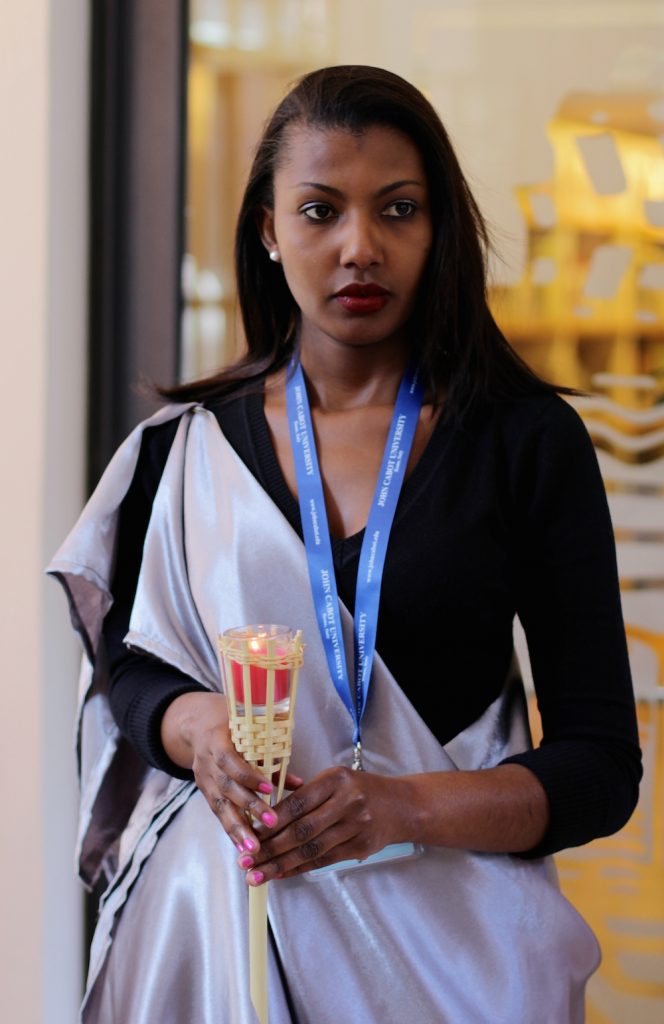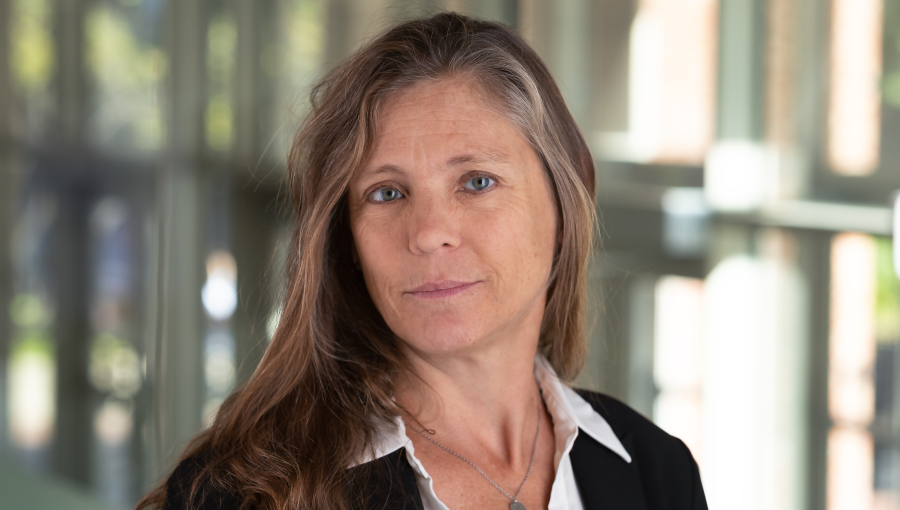JCU Hosts Rwandan Genocide Commemoration
On April 7, John Cabot University hosted a meeting in commemoration of the 800,000 victims slaughtered in the space of one hundred days during the 1994 Rwandan genocide, perpetrated against the Tutsis and moderate Hutus. The event was a collaboration between JCU, the University of Rome “Roma Tre,” the Budapest Centre for the International Prevention of Genocide and Mass Atrocities, the NGO “Progetto Rwanda,” La Repubblica newspaper, and an association of Rwandan survivors living in Italy. In 2003, the UN declared April 7th as the “International Day of Reflection on the Genocide in Rwanda.”
Distinguished guests. Among the guests at the ceremony, attended by over 120 people, were French author Jacques Morel, survivor and writer Révérien Rurangwa, two anthropologists specializing in African studies, Michela Fusaschi and Francesco Pompeo, reporter Pietro Veronese from La Repubblica, and leader of “Project Rwanda” Patrizia Salierno. The guests united with the firm objectives of keeping the memory of the tragedy alive for new generations and to learn from the lessons of the past. These lessons serve as the solid foundation for a better and safer future.
The role of memory. The conference mainly focused on the important role played by memory in guiding the current narrative of Rwandan society, institutions, and reconciliation. In the words of Father Luc Bucyana, a member of the surviving Igihozo family, “memory is the major weapon to fight against historical revisionism (…) to do it is not an option, but a duty of everybody.” The same message was pronounced by Professor Fusaschi, who claimed that “to keep memory alive is vital.” Enzo Maria Le Fevre Cervini conferred, stating that “through remembrance it is possible to prevent future genocides.”
Analyzing the genocide. The conference then turned to the analysis of the Rwandan Genocide. Professor Federigo Argentieri said that what triggered the Rwandan genocide were the racial distinctions that were progressively introduced and institutionalized in the early 1930s by the European colonial powers.
Jacques Morel then examined this argument in depth. Author of a 1,500-page exhaustive study, Morel discussed the impact the actions of the Catholic Church and the Belgians had in fomenting ethnic hatred toward the Tutsis. He also discussed the unethical political behavior adopted by the French in supporting and providing coverage to the mass slaughter carried out under the Hutu regime in the 1990s. The moral at the heart of Morel’s speech was clear: “France made the Rwandan genocide possible by backing up the Hutu power (…) and destabilizing the United Nations from taking action for the prevention and suppression of acts of genocide.”
Révérien Rurangwa, a genocide survivor, then gave a testimony on the atrocious crimes committed against him and his own family by the Hutu militias, called Interhamwe. Of the 43 members of his family, Rurangwa was the only one who survived the brutal machete attack. He was severely injured, and still carries on his body the indelible scars of a close encounter with death. And yet, in his own survival he found the motivation to keep fighting his moral battle: “My responsibility is to keep the memory of the genocide alive (…) I will keep surviving to honor the memory of my family (…) all I am asking for is for the remaining ‘rescapés’ in the world to be granted justice and their right to life and personal liberty.” Rurangwa recently published a book entitled Génocidé in which he recollected the memories of his terrible experience so that, as he declared, even after death his story will continue living in the chapters of his book.
Rising from ashes. Following the speeches of the young members of the Igihozo family, the conference concluded with the reading of Eugène Gumira’s poem “Uri-He?” (Where Are You?) and the screening of Rising from Ashes, a documentary about the incredible voyage of the American cycling legend Jock Boyer. Boyer traveled to Rwanda to help a group of struggling genocide survivors pursue their dream of a national cycling team. Through many obstacles, Boyer succeeds in giving the team members new prerogatives and dreams, enabling them to rise from the ashes of their past.
This event marked a period of increased support to the memory of the Rwandan genocide by JCU and the Guarini Institute for Public Affairs, constantly encouraged by the Hon. Frank J. Guarini himself. The event organizers are the founders of the Italian section of Ibuka – Memory and Justice. Professor Argentieri was appointed to manage the “Memory, Documentation, Justice and Struggle against Genocidal Ideology” section of Ibuka in Italy in recognition of JCU’s growing role in the assessment of world affairs.








